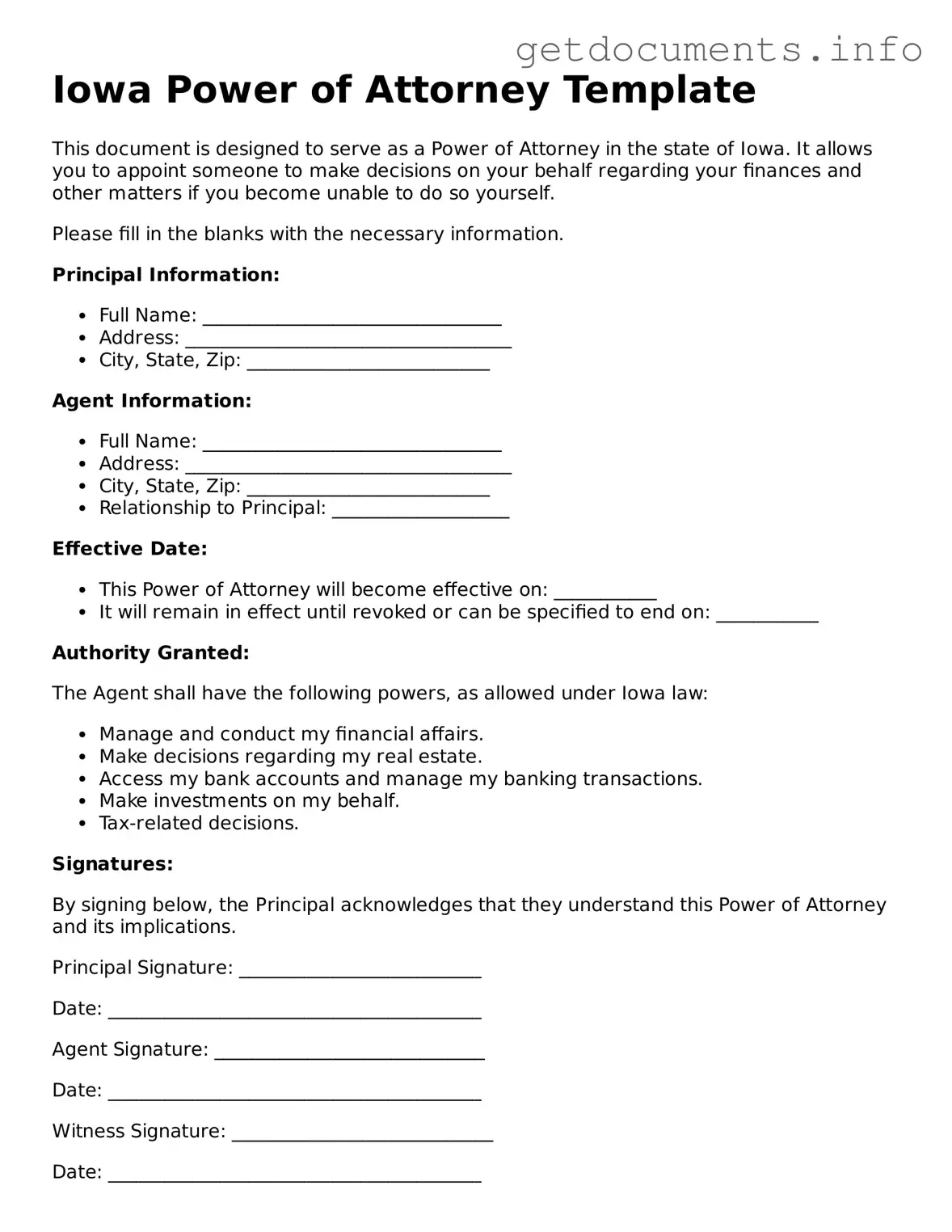Free Power of Attorney Template for Iowa
The Power of Attorney form in Iowa allows an individual to designate another person to make decisions on their behalf, particularly regarding financial or medical matters. This legal document empowers your chosen representative to act in your best interest when you are unable to do so. Understanding how to properly fill out this form is essential, so take the next step by clicking the button below to get started.
Access Power of Attorney Editor

Free Power of Attorney Template for Iowa
Access Power of Attorney Editor
Got places to be? Complete the form fast
Fill out Power of Attorney online and avoid printing or scanning.
Access Power of Attorney Editor
or
⇩ PDF File
